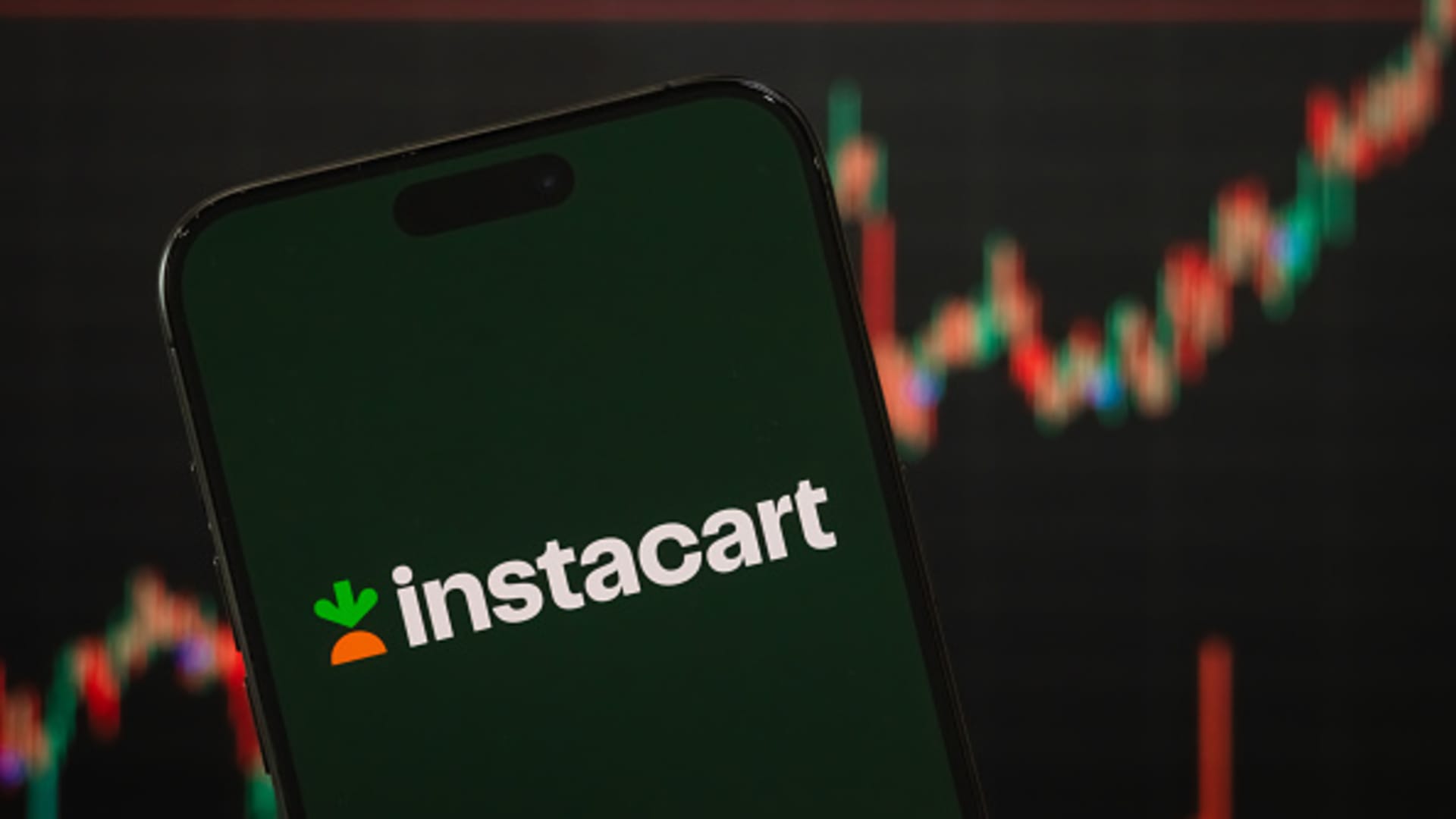Increasing competition in the grocery delivery space could send Maplebear lower over the coming months, according to Wedbush Securities. The firm downgraded Maplebear, which does business as Instacart, to underperform from neutral and slashed its price target to $42 from $55, which implies nearly 8% downside from Wednesday’s close. This comes as shares have faced meaningful pressure in recent months, falling more than 13% in the last six and more than 7% in the past month. That was exacerbated by a more than 11% drop earlier in August following the launch of Amazon’s same-day delivery service of fresh foods in more than 1,000 cities and towns in the U.S., which analyst Scott Devitt believes has led to Prime becoming an “even more compelling subscription for grocery shoppers, diminishing the appeal of Instacart.” “Instacart has demonstrated healthy GTV growth and an improving margin trajectory over the last few quarters, tempering some investor concern,” the analyst wrote in a note on Thursday. “That said, the recent expansion of Amazon’s same-day perishable grocery delivery service has intensified the competitive environment.” CART 6M mountain CART, 6-month “While we recognize Instacart may carve out a specialized focus, providing omnichannel support to local/regional grocers with limited resources, we believe consumers will opt for more compelling and value-driven services,” he continued. “Management must now navigate this new dynamic to protect its market share, which we ultimately anticipate will erode over time as Amazon and others compete more closely.” With these competitive pressures, the analyst said he’s grown more cautious on the company’s ability to achieve its longer-term targets, seeing mid-single digit to low-single digit gross transaction value growth year over year in the coming years. He also said that the company will be pressured to increase its spending on incentives, sales and marketing and elsewhere to sustain growth, which will limit its outlook visibility. Devitt also noted that its share of the grocery delivery market is “deteriorating” among intermediaries. “The company’s market share relative to Uber, DoorDash, and others has fallen to ~58% in 2024 from 70% two years prior,” he wrote. “Additionally, there is sustained risk that the company’s largest retail partners could drive a greater share of incremental online grocery demand to their own first-party offerings over time.” More than half of the analysts covering the name are still bullish, however, with 18 out of 34 analysts having a strong buy or buy rating, per LSEG. Sixteen, by contrast, have a hold rating. Shares fell almost 3% in the premarket Thursday following the downgrade.





